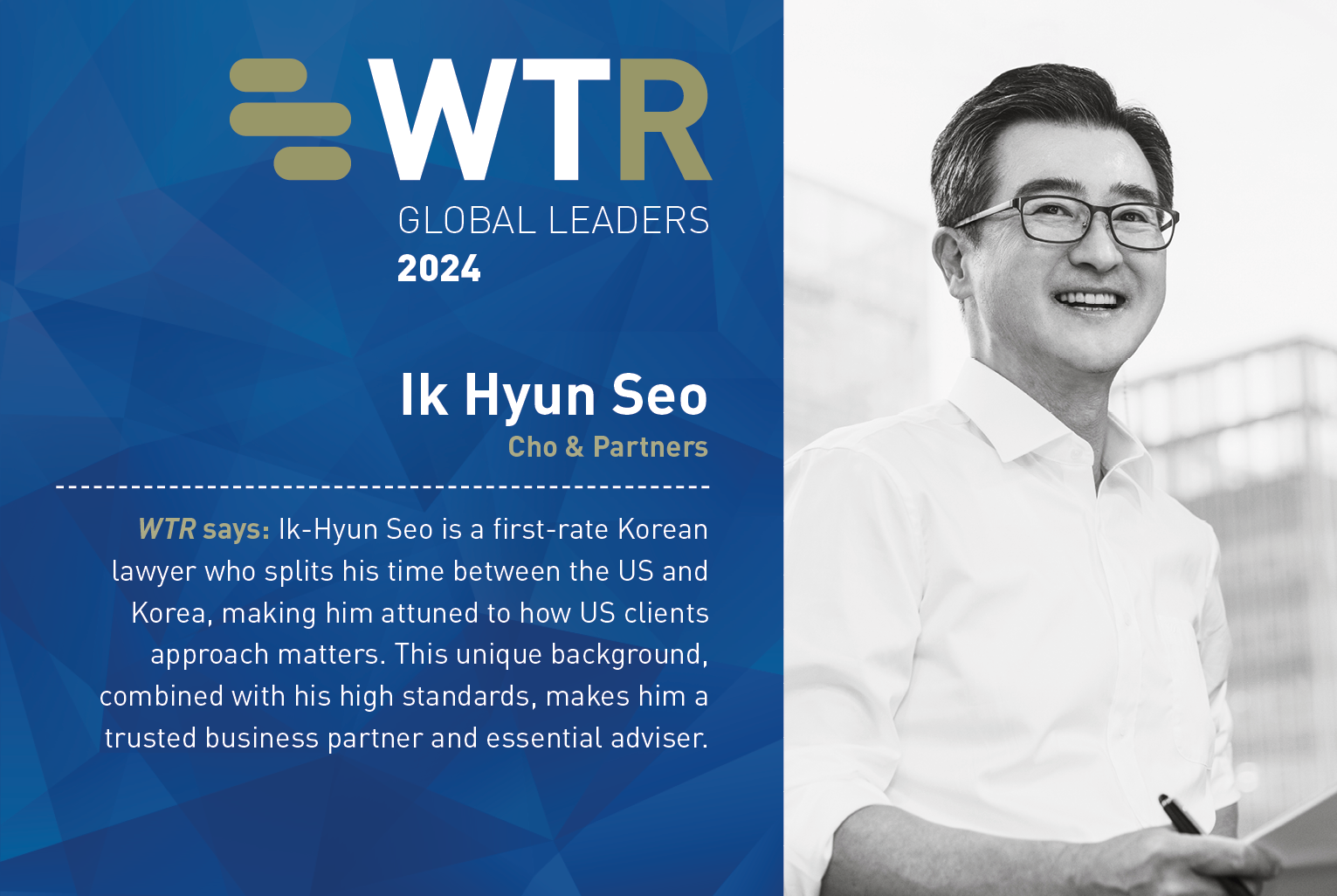Ik Hyun Seo

What recent decisions or legislative developments are having the biggest impact on trademark strategy in South Korea right now?
The most significant recent decision was in a case that our firm handled – we represented Louis Vuitton against a ‘reform’ service provider. A reform service provider will accept presumably genuine used products from customers and use the materials to create entirely new products. Such activities have surged in Korea and other Asian countries. This is a growing concern for luxury brands as their marks’ image and reputation could be negatively affected by these products entering the market.
Louis Vuitton received a favourable decision from the trial court, which found that these commercial activities constituted infringement. The defendant appealed and the case is now pending before the Patent Court and is being closely followed by the Korean media. Given the significance of the legal issues and the stakes involved for both sides, it is highly likely that the case will eventually reach the Supreme Court.
You are renowned for your expertise when it comes to anti-counterfeiting in Asia. In your view, what further steps could the industry be taking to raise awareness about the dangers of infringement among consumers?
The dangers of counterfeit products are obvious when it comes to goods that are consumed or ingested (ie, food, medicines and supplements) as well as critical mechanical parts (ie, brakes and safety equipment). I think that more safety awareness efforts could be made for other product categories where the risks and dangers are not as clear to the general public and where there is more willingness to purchase fake products.
There is still a robust appetite for fake phone batteries, chargers and cables, which all pose very real fire and explosion risks as they have not been properly tested and certified. Even seemingly innocuous counterfeit clothing, bags and shoes carry hidden risks and dangers from toxic materials and paints, allergens and harmful metals (eg, lead). Greater awareness of these less obvious risks could reduce the public’s appetite for counterfeits.
How would you address or respond to client concerns about using generative AI in private practice?
There has been some fairly recent news about experiments involving the use of generative AI in connection with the practice of law in Korea. However, it is reasonable to suggest that it is still in its infancy – although interest is fast growing. In my opinion, I believe the most reasonable and natural evolution of generative AI in legal practice would be development into efficiency-enhancing tools rather than replacing the role of humans.
Our firm plans to adopt it cautiously, only once we are fully confident that the tools are reliable. There have been many news stories of things turning out badly because lawyers relied too heavily and blindly on flawed AI technology without the necessary levels of human intervention.
You have won acclaim for being an excellent litigator. What are the most critical characteristics of a winning strategy before the courts?
Because intellectual property is a highly specialised field with many nuances, it can be difficult for a general court of law to fully understand complex theories and principles. Thus, a winning approach must start with a simple-to-grasp story that is supported by easily digestible logic and a sense of fairness.
Also, never underestimate the other side. Always try to view everything from their perspective. This helps to predict their strategies and next steps, but also to identify our own side’s potential weaknesses, which enables us to consider pre-emptive measures.
As a WIPO domain-name dispute panellist, how do you predict that the appetite for domain name applications might evolve in the next few years, and why?
When I became a panellist over 20 years ago, domain names were a relatively new commodity; domain-name squatting was rampant. There was an ocean of domain names taken in bad faith for the purposes of unjust enrichment and an enormous number of domain-name disputes. At the time, I thought that this number would eventually taper off as companies developed more sophisticated registration strategies (eg, obtaining registrations before announcing mergers or rebranding plans) and domain-name squatting became less profitable. To my surprise, this has not been the case. New business and advertising models have allowed squatting to remain profitable under the right circumstances, and with the continued introduction of new types of domain names, the same problems persist. For the reasonably foreseeable future, disputes will likely continue to arise and the need for domain-name dispute proceedings will remain healthy and robust.
Ik Hyun Seo
Partner
[email protected]
Ik Hyun Seo is widely recognised as a leading IP lawyer by major IP publications. After starting his career as an IP litigator in the United States, Mr Seo relocated to Seoul. He has been working across all areas of intellectual property for nearly 30 years.